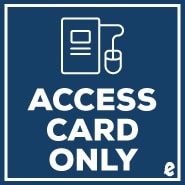
Unit I: Essential Communication Elements
Chapter 1: Appreciating and Understanding Human Communication
Graphic Organizer
Learning Outcomes
Thinking About Communication
Learning About Communication
Linking Ethics and Communication
Becoming a Competent and Ethical Communicator in College, Career, and Life
Summary
Questions for Discussion
Exercises
Key Terms
Chapter 2: Perception: Self, Others and Communication
Graphic Organizer
Learning Outcomes
Understanding the Process of Perception
Facing Perceptual Challenges
Connecting Perception and Communication: A Reciprocal Relationship
Improving Your Perceptual Skills
Enacting Competent and Ethical Perception in College, Career, and Life
Summary
Questions for Discussion
Exercises
Key Terms
Chapter 3: Effective Listening
Graphic Organizer
Learning OutcomesOvercoming Our Reluctance to Listen
Learning to Listen Effectively
Reaping the Rewards of Listening
Using Listening to Enhance Learning
Becoming a Competent and Ethical Listener in College,Career, and Life
Summary
Questions for Discussion
Exercises
Key Terms
Chapter 4: Verbal Communication and Language
Graphic Organizer
Learning Outcomes
Understanding Verbal Communication
Identifying the Properties of Language
Recognizing the Power of Language
Connecting Language and Gender
Connecting Language and Culture
Using Language Competently and Ethically in College, Career, and Life
Summary
Questions for Discussion
Exercises
Key Terms
Chapter 5: Nonverbal Communication
Graphic Organizer
Learning Outcomes
Understanding Nonverbal Communication
Identifying the Properties of Nonverbal Communication
Classifying the Types of Nonverbal Communication
Connecting Nonverbal Communication and Gender
Connecting Nonverbal Communication and Culture
Becoming a Competent and Ethical Nonverbal Communicator in College, Career, and Life
Summary
Questions for Discussion
Exercises
Key Terms
Unit II: Interpersonal Communication
Chapter 6: Understanding Interpersonal Communication
Graphic Organizer
Learning Outcomes
Recognizing the Difference Between Impersonal and Interpersonal Communication
Understanding Intimacy as a Key Concept of Interpersonal Communication
Identifying the Stages of Relationship Development and Dissolution
Developing Releationships Between Professors and Students
Connecting Gender and Intepersonal Communication
Connecting Culture and Interpersonal Communication
Becoming a Competent and Ethical Interpersonal Communicator in College, Career, and Life
Summary
Questions for Discussion
Exercises
Key Terms
Chapter 7: Practicing Effective Interpersonal Communication
Graphic Organizer
Learning Outcomes
Acknowledging the “Reality” of Relationships
Understanding Interpersonal Communication Dialectics
Applying Interpersonal Dialectics to Families
Applying Interpersonal Communication Dialectics to Friendships
Applying Interpersonal Communication Dialectics to College
Applying Interpersonal Communication Dialectics to Communities
Managing Conflict in Interpersonal Relationships
Creating More Assertive Relationships
Building Competent and Ethical Interpersonal Relationships in College, Career, and Life
Summary
Questions for Discussion
Exercises
Key Terms
Unit III: Public Communication
Chapter 8: Public Speaking: Process, Purposes, Topics, and Audiences
Graphic Organizer
Learning Outcomes
Studying Public Speaking
Understanding the Process of Public Speaking
Identifying Public Speaking Purposes
Selecting a Subject
Selecting a Topic
Relating a Topic to Purposes
Writing a Thesis Statement
Gathering Information
Conducting Interview and Recording Personal Observations
Evaluating Materials
Identifying Different Types of Speeches
Becoming a Competent and Ethical Public Speaker in College, Career, and Life
Summary
Questions for Discussion
Exercises
Key Terms
Chapter 9: Organization, Supporting Material, Delivery, and Visual Aids
Graphic Organizer
Learning Outcomes
Organizing Your Ideas
Outlining for Effective Speaking
Identifying Patterns of Organization
Understanding the Parts of a Speech
Gathering Supporting Materials
Citing Sources
Using Visual Aids to Enhance Delivery
Delivering Your Speech Effectively
Dealing With Communication Apprehension
Preparing for Effective Delivery
Achieving Competent and Ethical Speech Delivery in College, Career, and Life
The Importance of Organizational Skills for College Learning and Life
Summary
Questions for Discussion
Exercises
Key Terms
Chapter 10: Informative Speaking
Graphic Organizer
Learning Outcomes
Defining Informative Speaking
Identifying Types of Informative Speeches
Organizing Informative Speeches
Becoming an Effective and Ethical Informative Speaker
Understanding the Value of Informative Speaking for College, Career, and Life
Summary
Questions for Discussion
Exercises
Key Terms
Chapter 11: Persuasive Speaking
Graphic Organizer
Learning Outcomes
Defining Persuasion
Understanding the Role of Attitudes in Persuasion
Building Persuasive Credibility
Crafting Persuasive Messages
Identifying Types of Persuasive Speeches
Organizing Persuasive Speeches
Becoming a Competent and Ethical Persuasive Speaker in College, Career, and Life
Unit IV: Groups, Organizations & Mass Communication
Chapter 12: Groups in Discussion
Graphic Organizer
Learning Outcomes
Understanding the Characteristics of Groups
Distinguishing Between Indivdual Goals and Group Goals
Identifying Types of Groups
Determining Roles in Groups
Understanding Leadership in Groups
Tracing the Stages of Group Development
Appreciating Culture, Values, and Gender in Groups
Solving Problems in Groups
Making Quality Decisions in Groups
Becoming a Competent and Ethical Group Member in College, Career, and Life
Summary
Questions for Discussion
Exercises
Key Terms
Chapter 13: Communication in Organizations
Graphic Organizer
Learning Outcomes
Understanding the Importance of Communication in Organizations
Appreciating Organizational Cultures
Understanding Organizational Systems: The System Model
Examining Communication Contexts in Organizations
Confronting Challenges in Contemporary Organizations
Identifying and Avoiding Sexual Harassment
Using Technology in Organizations
Preparing for the Job Market Early in College
Putting Organizational Communication Into Practice in College, Career, and Life
Summary
Questions for Discussion
Exercises
Key Terms
Chapter 14: Mass Communication and Computer Mediated Communication
Graphic Organizer
Learning Outcomes
Understanding the World of Mediated Mass Communication
Identifying Characteristics of Mediated Communication
Examining Effects of Mass Communication
Thinking About Computer Mediated Communication and Social Media
Evaluating Blogs and the Changing Face of News
Being a Critical Consumer of Media
Becoming a Competent and ethical Mediated and Mass Communicator in College, Carrer, and Life
Summary
Scenario
Questions for Discussion
Exercises
Key Terms
The New copy of this book will include any supplemental materials advertised. Please check the title of the book to determine if it should include any access cards, study guides, lab manuals, CDs, etc.
The Used, Rental and eBook copies of this book are not guaranteed to include any supplemental materials. Typically, only the book itself is included. This is true even if the title states it includes any access cards, study guides, lab manuals, CDs, etc.